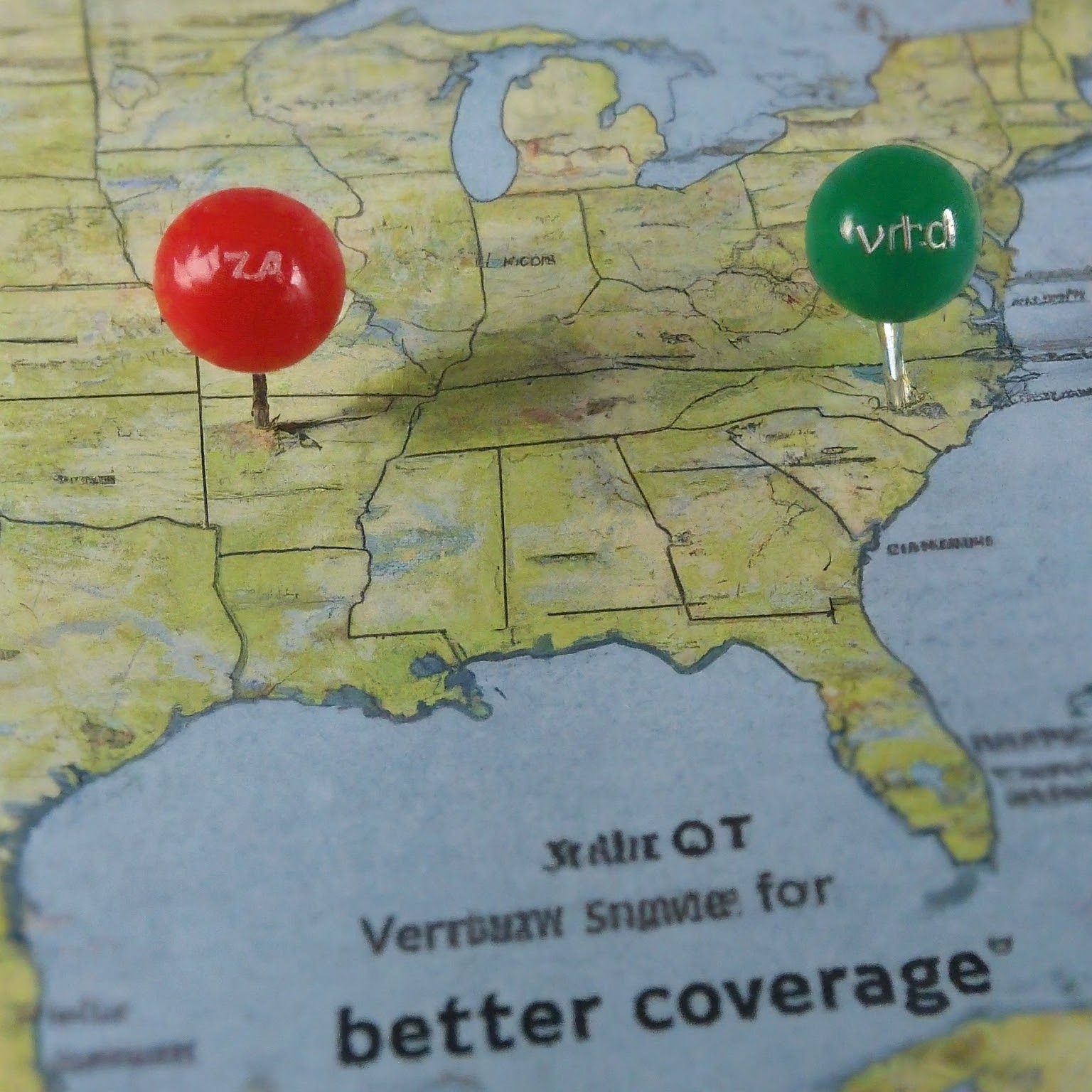Contemplating a switch from AT&T to Verizon? You’re not alone. Many mobile users find themselves evaluating carrier options based on factors like network coverage, plan features, and overall value. This guide delves into everything you need to know to make a smooth switch to Verizon from AT&T.

Is Switching Right for You?
Before diving in, consider these key points:
- Network Coverage: Verizon boasts a strong nationwide network, particularly in rural areas. However, AT&T might have a stronger presence in your specific location. Use Verizon’s coverage map https://www.verizon.com/coverage-map/ and compare it to AT&T’s to see if Verizon offers better coverage where you live and work.
- Plan Options: Both carriers offer a variety of plans catering to different needs and budgets. Evaluate your current data usage, talk minutes, and messaging habits to choose a Verizon plan that aligns with your requirements.
- Contract vs. Prepaid: AT&T offers both postpaid contracts and prepaid plans. Verizon primarily focuses on postpaid contracts, though prepaid options exist. Consider the commitment you’re comfortable with – contracts often offer better phone deals but lock you in for a period.
- Device Compatibility: Ensure your current phone is compatible with Verizon’s network. You can check compatibility on Verizon’s website https://www.verizon.com/bring-your-own-device/ by entering your phone’s model number. Alternatively, you can upgrade to a new phone with Verizon during the switch.
Making the Switch Seamless: A Step-by-Step Guide
Ready to make the switch? Here’s a breakdown of the process:
- Check Contract Status: Verify your current AT&T contract status. If under contract, there might be an early termination fee (ETF) associated with canceling it before the end of the term. Factor this into your decision-making.
- Unlock Your Phone (if necessary): Most phones purchased directly from AT&T are unlocked and can be used on other networks. However, if you bought your phone on a contract, it might be locked to AT&T’s network. You can usually request an unlock code from AT&T once your contract is fulfilled or if you meet specific eligibility criteria.
- Gather Account Information: Locate your AT&T account number and the phone number you want to transfer. You might also need a porting PIN or account password for verification during the switch.
- Choose a Verizon Plan: Explore Verizon’s website or visit a store to browse their plan options. Consider individual vs. family plans, data allowances, and any potential promotions or discounts available for new customers switching from AT&T.
- Port Your Number: Inform Verizon of your intention to transfer your existing phone number during the activation process. They’ll initiate a porting request with AT&T, typically taking 24-48 hours to complete.
- Activate Your New Verizon Service: Once your number is ported, finalize your Verizon service activation. This might involve setting up a new account, selecting a payment method, and potentially activating a new phone if you choose to upgrade.
Benefits of Switching to Verizon
Here’s what Verizon offers that might entice you to switch:
- Extensive Network Coverage: Verizon boasts a robust nationwide network, particularly strong in rural areas.
- Fast Data Speeds: Verizon offers competitive data speeds, ideal for streaming, downloading, and online activities.
- Unlimited Data Plans: Verizon provides various unlimited data plans, catering to users who require substantial data usage.
- Strong Customer Service: Verizon is known for its extensive customer support network, offering assistance through phone, online chat, and physical stores.
- Device Deals and Promotions: Verizon often offers attractive promotions for new customers switching from other carriers, including discounts on phones and waived activation fees.
Potential Drawbacks of Switching to Verizon
While Verizon offers numerous advantages, consider these potential drawbacks:
- Higher Costs: Verizon’s plans might be slightly more expensive than some AT&T options, particularly for lower data usage needs.
- Contract Dependency: Most Verizon plans involve contracts, locking you in for a period.
- Network Congestion: In densely populated areas, Verizon’s network might experience occasional congestion, impacting data speeds.
Making an Informed Decision: Weighing Your Options
Ultimately, the decision to switch to Verizon from AT&T depends on your unique needs and priorities. Carefully evaluate factors like network coverage in your area, desired plan features, budget constraints, and your comfort level with contracts. Here are some additional tips for making an informed choice: